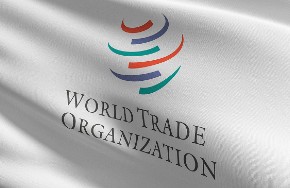
Next week sees the start of the pivotal 12th World Trade Organization Ministerial Conference, with decision-makers from around the world coming together to review the current functioning of the multilateral trading system and future priorities for the Geneva-based body.
The war in Ukraine and the ensuing global food crisis means this will be “no ordinary ministerial conference,” Business Standard reports.
The IOE&IT here looks at the four most pressing policy issues that are likely to be discussed.
1) The global food crisis
According to the BBC, WTO director general Ngozi Okonjo-Iweala is likely to tell the conference that African countries face being particularly hard-hit by the global food crisis, with grain exports from Ukraine restricted by the war with Russia.
She is likely to repeat warnings about impending food price rises, with the cost of wheat rising 59% year-on-year and sunflower oil up 30%.
Top of the agenda will be allowing exports of food grains from public stocks for international food aid and for humanitarian purposes.
Currently, WTO rules prevent member countries from exporting subsidised food-grains to the world market, because it may distort global food prices.
2) Tariff moratorium on e-commerce
According to The Wire, one of the key decisions being made could be the removal (or extension) of the Moratorium on Customs Duties on Electronic Transmissions.
Currently, nations are prohibited from charging taxes on electronic trade.
India and South Africa are pushing for the moratorium to be removed, whilst nations such as Japan, Australia and Singapore are insisting that the ban should be made permanent.
The International Chamber of Commerce has stated that the moratorium is key to the global recovery after Covid-19, arguing that it a removal ‘would be a historic setback for the WTO’.
3) Environment and trade
After the discussions at the United Nations Climate Change Conference (COP) in Glasgow last year, all eyes will turn to the WTO to see if any new proposals aimed at sustainability will emerge.
Simon Manley CMG, Britain’s representative to the WTO, earlier has highlighted the role the WTO could have in fighting climate change, saying ‘we simply cannot fail to recognise the role that this organisation needs to play in the transition to net zero/a greener global economy’.
Okonjo-Iwelea has already stated that ‘trade is part of the solution to challenges we face’, highlighting the role that shipping, aviation and plastics play in the global economy and how the WTO could tackle these issues with better trade policies that help bring in marginalised groups into the world economy.
4) Covid IP Waiver
Another issue likely to arise is the debate surrounding a waiver of intellectual property protections for Covid-19 vaccinations.
Developing nations are pushing for more drastic changes to an agreement reached in March aimed at allowing African and Asian countries to preproduce the Covid vaccines in small quantities without the consent of their creators of the vaccines.
Reuters has reported recent criticisms from civil society groups that the current waiver agreement is too narrow and have called for it to be expanded to include diagnostics and treatments.



